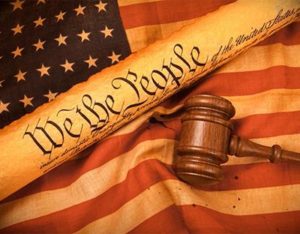A power struggle between the legislative and the executive branches of the federal government is now in full swing.
I am going to side — no surprise here — with the legislative branch in its fight with the other guys.
Attorney General William Barr — quite likely with the full blessing of the president of the United States — has decided to be a no-show at today’s House Judiciary Committee hearing. The committee, controlled by Democrats, wants to know more about Barr’s receipt of the report filed in March by special counsel Robert Mueller III on the matter involving “collusion” and “obstruction of justice” with regard to the Trump campaign’s involvement with Russians.
Barr has the answers. He is not giving the House committee any of them.
The struggle involves whether the House controls the parameters of these hearings or whether the White House gets to choose which rules it will follow and which of them it will ignore.
Judiciary Committee Chairman Jerrold Nadler says the House is in charge. He says the White House cannot dictate how Congress does its job. He points out correctly that Article I of the U.S. Constitution lays out Congress’s exclusive power and declares that the legislative and executive branches are “co-equal,” meaning that neither branch is more powerful than the other.
Barr stayed away because he didn’t want to be quizzed by committee lawyers. Cry me a river, Mr. Attorney General.
The way I see it, that’s just too damn bad.
The House gets to call the shots here. Not the AG. Not the POTUS.
Barr’s appearance Wednesday before the Senate Judiciary panel raised many questions that House members want to flesh out, as if they didn’t have a full plate of questions already. One of those questions might be why Barr didn’t read the supporting evidence that Mueller provided in his full report before issuing his four-page summary of its findings.
We won’t hear from the AG, at least not yet. Nadler says he is considering whether to file a contempt of Congress citation against the attorney general.
He is allowed to do that, too. The Constitution gives the chairman that power.
The struggle is on.
